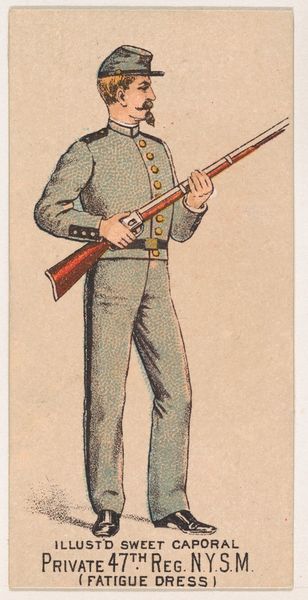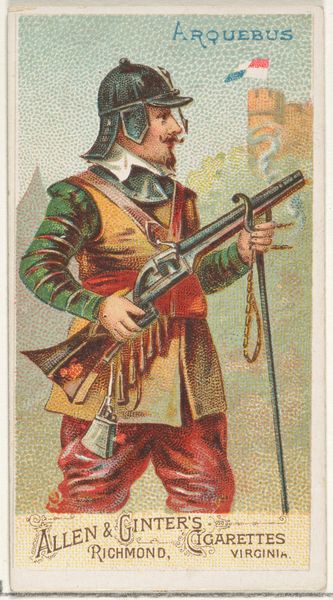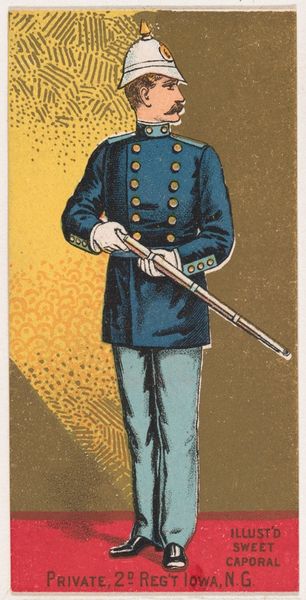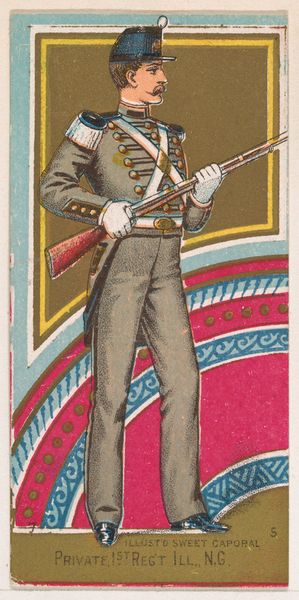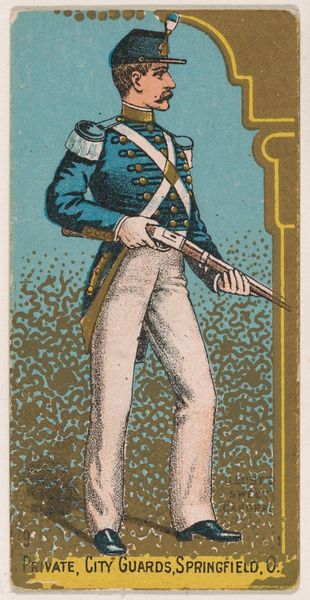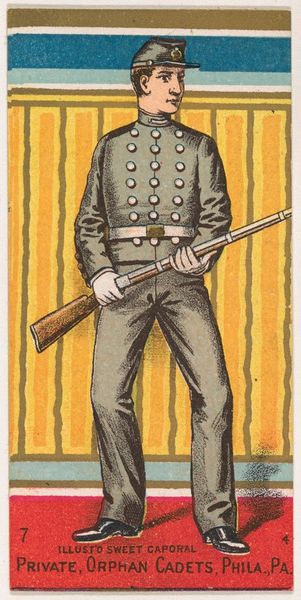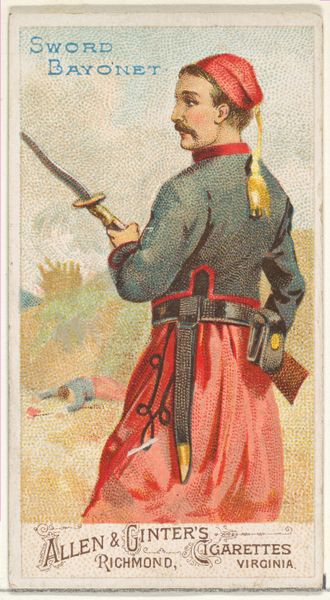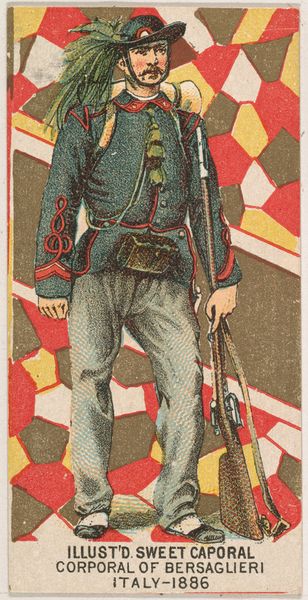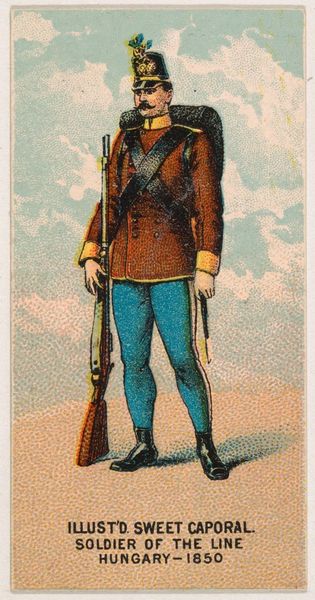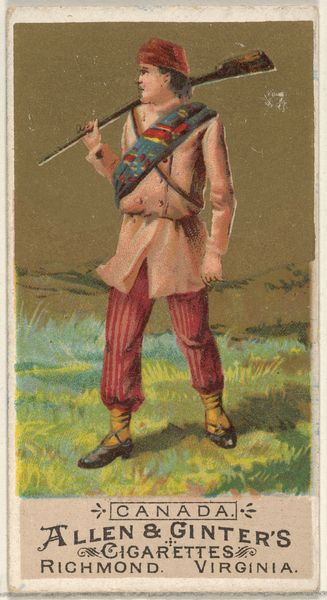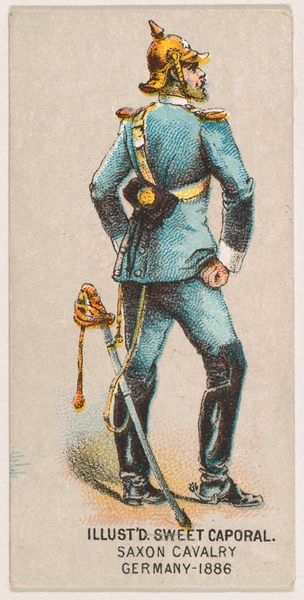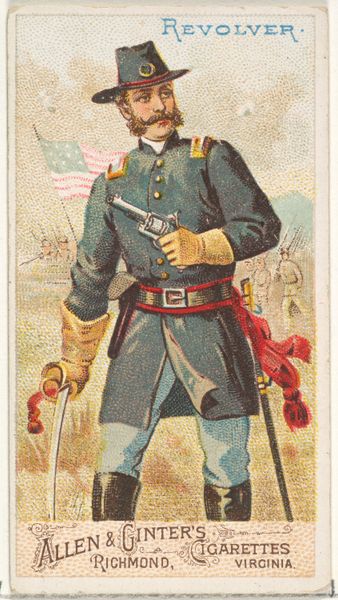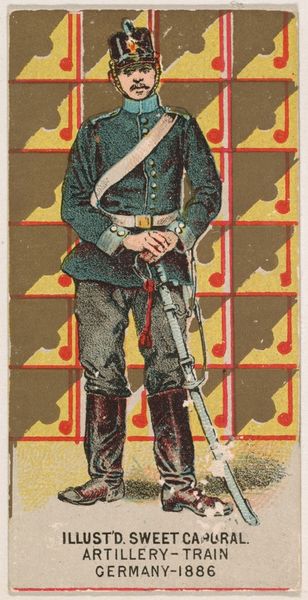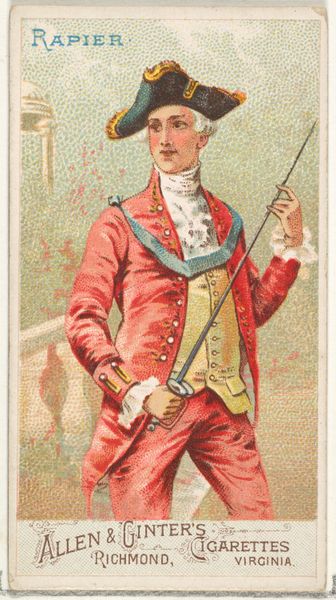
Flint-Lock Musket, from the Arms of All Nations series (N3) for Allen & Ginter Cigarettes Brands 1887
0:00
0:00
drawing, coloured-pencil, print
#
portrait
#
drawing
#
coloured-pencil
# print
#
caricature
#
figuration
#
coloured pencil
#
genre-painting
#
history-painting
#
academic-art
#
watercolor
Dimensions: Sheet: 2 3/4 x 1 1/2 in. (7 x 3.8 cm)
Copyright: Public Domain
Editor: Here we have “Flint-Lock Musket,” dating back to 1887, from the “Arms of All Nations” series by Allen & Ginter, rendered using colored pencils, I believe, and produced as a print. I'm struck by the almost romanticized depiction of warfare and history it offers. It’s not exactly glorifying it, but presenting it in a neat little collectible card…it feels a bit odd. What are your thoughts on how it presents history? Curator: The immediate context is crucial. Allen & Ginter was a major tobacco company; these cards were promotional items included in cigarette packs. So, the goal wasn’t historical accuracy, but rather to associate their brand with a sense of adventure and global reach. Think about the cultural context. The late 19th century saw a rise in nationalism and imperialistic fervor. Series like "Arms of All Nations" romanticized military power, appealing to consumers caught up in that spirit. Does knowing it was meant to sell tobacco change your view? Editor: It certainly complicates things! The subject is war and weaponry but also is related to entertainment, capitalism, and...addiction, even. Curator: Precisely. Now, consider how the image functions. It simplifies and sanitizes the reality of warfare. The soldier appears clean and untroubled, the setting pastoral, devoid of the actual violence and suffering associated with using the Flint-Lock Musket. It reduces history to a collectible object, stripping away its complexity. Editor: It makes me question what stories get told, by whom, and why. I’d never thought about how much a cigarette card could reveal about societal attitudes toward militarism. Curator: Exactly! And how businesses can shape the public's perception through art. We have to recognize that art in public spaces always has social and political undertones. Even in commercial artworks, we learn not just about historical arms, but about historical aspirations and anxieties. Editor: Thanks. Looking at art this way brings fresh, sometimes disturbing, insights. Curator: Indeed. It shows us how art serves many roles simultaneously.
Comments
No comments
Be the first to comment and join the conversation on the ultimate creative platform.
